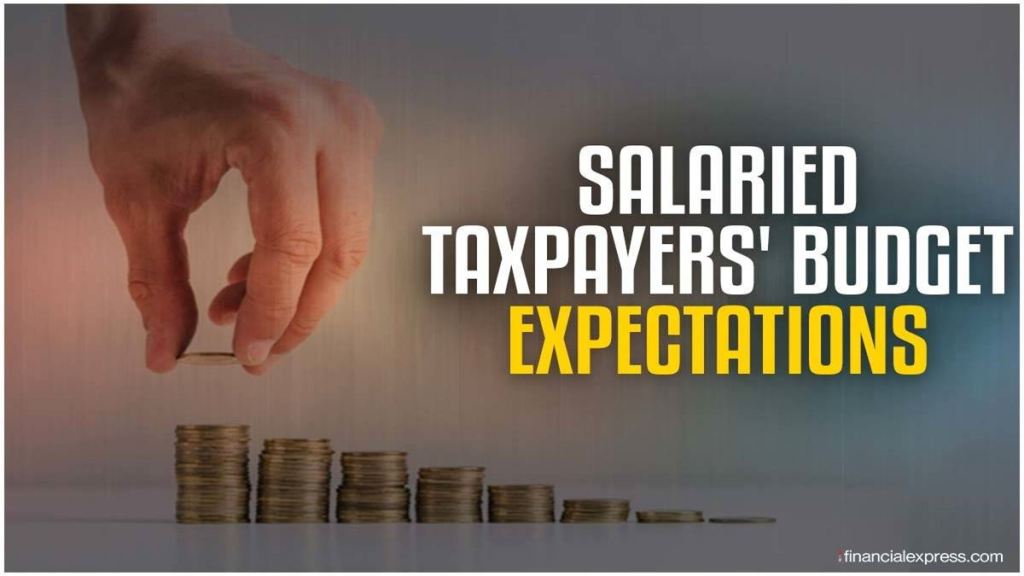With the upcoming presentation of the Union Budget 2024 by Finance Minister Nirmala Sitharaman on July 23rd, the salaried class is eagerly anticipating favorable announcements. This includes tax reductions and reforms aimed at simplifying and streamlining taxation processes.
Salaried taxpayers are hopeful for lower income tax rates to alleviate the impact of inflation and rising interest rates. Additionally, they are looking forward to incentives that promote equity investments, such as tax exemptions, leading to higher disposable income. The expectation also extends to the introduction of a more straightforward tax structure and expanded tax exemptions in the budget.
A few expectations of the salaried class from the Union Budget 2024 are outlined below:
1. Rationalization of slab rates
Numerous people anticipate that the government will adjust the income tax slab rates to create a more progressive and fair system. This adjustment has the potential to lower taxes for the middle-income bracket. Additionally, the current maximum surcharge rate in the new tax regime stands at 25%, while in the old tax regime, it is 37%. The benefits offered in the new tax system could possibly be expanded to the old tax system as well.
Also Read: Union Budget 2024: 5 key announcements senior citizens can expect from FM Nirmala Sitharaman
2. Increase in 80C deduction limit
The government should consider increasing the deduction limit under Section 80C of the Income Tax Act to offer assistance to middle-class taxpayers. Given that the deduction amount was last modified in FY2014-15, remaining at Rs 1.5 lakh for an extended period, an adjustment upwards is well overdue. The deduction is widely considered the most crucial tax benefit for individual taxpayers in the previous tax system. Given the rising cost of living, raising the deduction limit to a minimum of Rs 2 lakh from the current Rs 1.5 lakh would offer significant relief to the majority of salaried individuals.
3. Rationalization of New Tax Regime
It is important to consider extending the deductions available to individuals under the older tax regime, such as health insurance and NPS contributions, to the new tax regime. This will help promote equal access to healthcare and incentivize savings and investments for taxpayers.
Moreover, “an increase in the basic exemption limit from Rs 3 lakh to Rs 5 lakh in the new tax regime could provide a much-needed impetus to domestic savings,” says Parizad Sirwalla, Partner and Head, Global Mobility Services, Tax, KPMG in India.
4. Increase in Standard Deduction limit
The only deduction salaried taxpayers get is a standard deduction of Rs 50,000. Considering the rate of inflation and this limit being fixed for the past many years now, it is a popular expectation to increase the same to at least Rs 1 lakh.
5. Change in House Rent Allowance (HRA) tax exemption rules
HRA continues to be an exemption useful for the salaried class staying on rent specially in cities which is not their home city. “As per the formula for claiming such exemption, only four cities i.e., Chennai, Mumbai, Delhi, and Kolkata, are eligible for exemption basis 50% of salary. Rest of the places get the exemption basis 40% of salary only. In today’s times cities like Bengaluru, Hyderabad, Gurgaon, Pune etc. have also equally become expensive. Hence, the expectation that HRA rules may be updated in Budget 2024 to include these cities for HRA exemption basis 50% of salary,” suggests Sirwalla.
6. Inclusion of interest on different kinds of bank deposits u/s 80TTA
Salaried individuals often distribute their money across various savings and term deposit accounts in order to maximize their returns. As such, it may be beneficial for the government to consider including interest earned on different types of bank deposits, such as fixed deposits, under section 80TTA. Additionally, raising the threshold for this inclusion from Rs 10,000 to Rs 50,000 could be a favorable decision.
7. Boost to housing
With the aim of achieving housing for all, there is a widespread anticipation that the government might introduce certain tax incentives for housing and reduce funding costs for middle and low-income individuals. Under the current default tax system, interest on housing loans is not deductible for self-occupied properties. In contrast, the previous tax system allows a deduction of up to Rs 2 lakh only. This differentiation is significant as purchasing a home and obtaining a loan for self-occupation are major financial commitments that often last for extended periods. Given the recent increases in interest rates and regulatory changes, the real estate sector is facing growing challenges. To address these issues and promote homeownership, it is recommended that the government reconsider allowing deductions for interest on self-occupied housing loans even under the new default tax system or increase the deduction in the old tax system to at least Rs 3 lakh, according to KPMG in India.
Thus, there are expectations galore from the upcoming Budget 2024. However, whether this time the salaried class is able to get something from the government or not remains to be seen!

